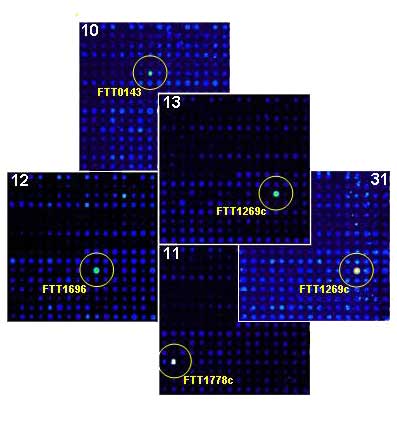PhD & MD/PhD Degree
We are pleased to announce that as of September 1, 2012 the Department of Pathology is participating in the Program in Biomedical Sciences (PiBS) which offers training towards the PhD degree by integrating the foundations of interdisciplinary biomedical research with focused investigation and preparation for career advancement. In the first year PhD students will participate in the Foundations in Biomedical Sciences (FiBS) core curriculum as well as have the opportunity to select elective courses focused on area-specific interests.When entering the PIBS Program you may be thinking about Pathology as your focus. The curriculum guide below will be helpful as you plan your educational journey. Additionally, trainees will engage in laboratory rotations, in journal clubs and research seminars. Trainees will work closely with a faculty advisor in the development of an individual plan that will be tailored to serve specific research and professional goals. After selection of a laboratory, students will join the program/department with which the mentor is affiliated and continue advanced studies towards candidacy
GENERAL : A course of study and laboratory experience extending over 1 – 2 years is followed by a qualifying examination which is taken within one semester after completion of required course work. The proposal for dissertation research is then developed and presented to the dissertation committee; the research is performed under the guidance of the major adviser with the help and advice of the committee.
The Director of Graduate Studies serves as a curriculum adviser to all students in the first two years of the program and approves the course registration forms. After the required courses are completed, the student’s research adviser provides direction in the choice of additional courses. Laboratory rotations are performed in the first year of study to:
- Acquaint the students with research opportunities in the program

- Teach a variety of approaches to research and teach specific research methods
- Permit choice of a laboratory for dissertation research. The dissertation research adviser should be chosen and preliminary work in the area of research begun early in the second year of study.
There is an emphasis on integration of basic experimental and clinical aspects of pathology in the program. Students are encouraged to attend research and clinical seminars and discussions at the Medical School.
For First Years PIBS Students Interested in Pathology, the following courses are Recommended
|
Example of a Typical First Year Curriculum for a PIBS Student Interested in Pathology (Credit numbers in parenthesis)
|
|
|
First Year Fall |
GMS: AN-704 (or equivalent) (2): Statistics; GMS: FC-701 (2)-Foundations/Protein Structure, etc; GMS: FC-702 (2)-Foundations/Genome Structure & Function; GMS: FC-703 (2)-Foundations/Cell Architecture & Dynamics; GMS: PA-710 (2)-Principles of Basic and Applied Pathology Total 10 credits |
|
First Year Spring |
GMS: FC-704 (2)-Foundations/Biomedical Sciences, etc; GMS: PA-510 (2)-Medical Immunology; GMS: PA-700 (4)-Basic and Experimental Pathology; GMS: Elective (2) Total 10 Credits |
|
Second Year Fall |
GMS: PA-800 (2)-Pathology Seminar; GMS: PA-810 (2)-Business of Science (recommended) or Elective (2); GMS: PA-900 (2)-Pathology Lab Rotations; GMS: PA-901 (2/varies)-Pathology Research Total 10 Credits |
|
Second Year Spring |
GMS: PA-801 (2)-Special Topics; GMS: PA-901 (4 or varies)-Pathology Research; GMS: Electives (4) Total 10 Credits |
|
3rd – 5th Years |
Directed Studies (credits as needed) |
|
Required to sit for the Qualifying Exam: GMS: FIBS I – IV; GMS: PA-700; GMS: PA-800 |
|
| Responsible Conduct of Research (RCR) is presented by |
|
For Second Years PIBS Students Interested in Joining Pathology, the following courses are Required/Recommended
|
Example of a Typical Curriculum for a Second-Year PIBS Student Coming into Pathology (Credit numbers in parenthesis) |
|
|
Second Year Fall |
GMS: PA-800 (2)-Pathology Seminar (required for Qualifying Exam); GMS: PA-900 (2)-Pathology Lab Rotations; GMS: PA-901 (2/varies)-Pathology Research; GMS: PA-810 (2)-Business of Science (recommended) or Elective (2) Total 10 Credits |
|
Second Year Spring |
GMS: PA-700 (4)-Basic and Experimental Pathology (required for Qualifying Exam); GMS: PA-801 (2)-Special Topics, Spring; GMS: Electives (4) Total 10 Credits |
|
3rd – 5th Years |
Directed Studies (credits as needed) |
|
Required to sit for the Qualifying Exam: GMS: FIBS I – IV; GMS: PA-700; GMS: PA-800 |
|
| Responsible Conduct of Research (RCR) is presented by |
|
For MD/PhD Students Interested in Pathology, the following courses are Required/Recommended
|
Example of a Typical Curriculum for an MD/PhD Student Coming into Pathology (Credit numbers in parenthesis) |
|
|
First Year Fall |
GMS: AN-704 (or equivalent) (2)-Statistics; GMS: PA-710 (2)- Principles of Basic and Applied Pathology; GMS: PA-900 (2)-Pathology Lab Rotations;~~ GMS: PA-810 (2)-Business of Science (recommended) or Elective (2/4) Total 10 Credits |
|
First Year Spring |
GMS: PA-801 (2)-Special Topics, Spring; GMS: PA-901 (4/varies)-Pathology Research;~~ GMS: Electives (2/4) Total 10 Credits |
|
2nd – 3rd Years |
Directed Studies (credits as needed) |
|
Required to sit for the Qualifying Exam: GMS: PA-800 |
|
| Responsible Conduct of Research (RCR) is presented by |
|
Additional Requirements:
Participation and attendance in the Departmental PA800 Friday Seminar (fall semester) and PA900 Friday Seminar (spring semester) is required through all terms of study and research. 2 course credits are given for one term (Beginning in 2nd year for Cell Biology Track).
Three laboratory rotations are required in the first year of study (may be reduced with prior research experience) Students will give a 10 minute oral presentation after each laboratory rotation.
For all students pursuing the combined MD/PhD degree: PA510 (Immunology) and PA700 (Pathology) requirements are fulfilled by the medical curriculum.
Each student is required to present a seminar in the Departmental seminar series in addition to their dissertation defense. This is usually done in the fourth year.
This document outlines other requirements that must be met for graduation from our PhD program: Requirements
PiBS Student Handbook (2023-2024 version)